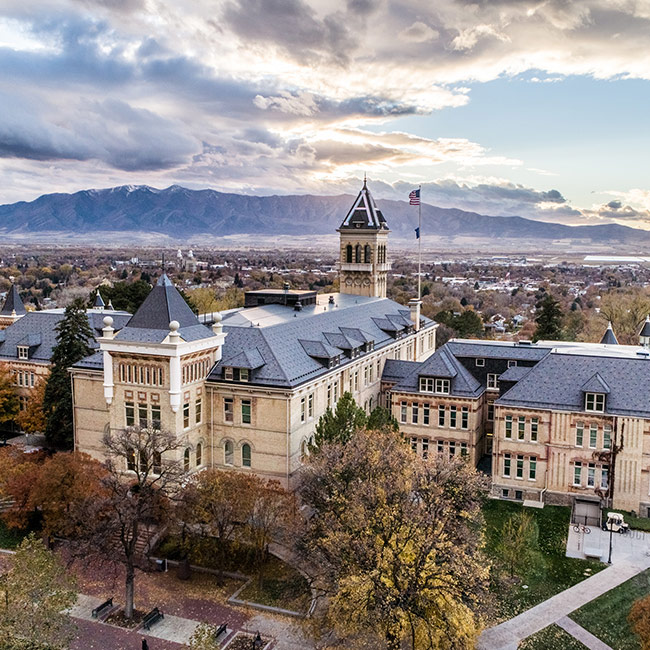About This Degree
Physics is the study of matter and energy and their interactions.
Students study both the theory of physics and experiment using those theories as a guide. At USU, all students participate in faculty-mentored research, gaining valuable experience in campus research centers and laboratories. This makes USU students better prepared for entrance into either the workforce or graduate school.
The Physics Department is home to an active, national-award-winning chapter of the Society of Physics Students. Its students and faculty have also been recipients of prestigious national awards, including a Rhodes Scholar, two Carnegie Professors, Goldwater Scholars, and more.
What You Will Learn
Beyond the experimental facilities at USU, many students are involved in theoretical work, data analysis, and computer simulations in general relativity and field theory, space weather forecasting, surface science, and complex system applications. There is also a Physics Learning Center available for undergraduate physics students where physics graduate students provide individualized help with homework concerns.
Students receive a by completing all required courses in the major. To receive a BA, students must also gain proficiency in one or more foreign languages.
Emphases:
Professional:
The professional emphasis prepares students who wish to establish careers in research to enter graduate-level education studying physics, astronomy, materials science, applied mathematics, and other related areas of physical science and engineering.
Applied:
This emphasis is recommended for students preparing for graduate work in applied physics, engineering physics, materials science, or an interdisciplinary area, such as biophysics, medical physics, geophysics, or chemical physics.
Career And Outcomes
Career Opportunities
While students who graduate in physics commonly continue on to graduate school, they can also pursue careers in the following areas:
- Lab technician
- Engineer aide
- Technical writer
- Research in industrial laboratories and governmental laboratories
- Technological industry
- Business
Job Outlook
USU Locations

LOGAN CAMPUS
Admission
Admission Requirements
In addition to Utah State University’s admissions requirements, the physics program has additional requirements:
- Freshmen: New freshmen admitted to USU in good standing qualify for admission to this major.
- Transfer students: Transfer students from other institutions need a 2.2 total GPA for admission to this major. Students transferring from other USU majors need a total GPA of 2.0 for admission to this major.
International students have additional admissions requirements.
Take The Next Step
Visit Campus
Schedule a campus tour and come see what it's all about.
Cost and Aid
Learn about tuition, scholarships, and other financial aid opportunities.
How to Apply
Start your degree path and apply now.
You May Also Be Interested In

Chemistry
Master the study of chemistry — matter, its properties, and interactions — complete with opportunities to conduct undergraduate research in chemistry with experts in the field as you prepare for graduate school or careers in research.

Climate Change and Energy
Get a basic, interdisciplinary understanding of Earth science and systems, including our changing climate and modern energy sources, from fossil fuels to renewable resources — and how they interact — in this minor.

Physics
Whether you're interested in working in research or academia or national labs, or in applied industries, like manufacturing and technology, this minor teaches you the fundamentals of quantum mechanics.

Physics Teaching
Prepare to become a middle school or high school physics teacher as you gain a solid foundation in both physics, or the interaction of matter and energy, and education, complete with hours of hands-on work in labs and teaching practicums.

